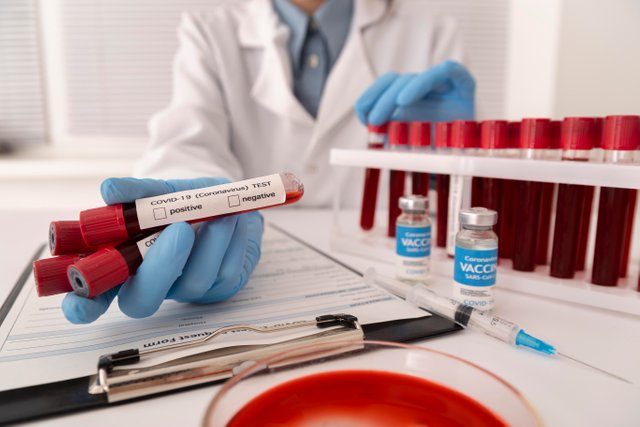6 recommended tests after recovery in Corona
.Long-term potential problems Are you infected with the new COVID-19 virus? If so, you'll take some tests, what? And why? Many patients who have recovered from Covid-19 suffer from post-COVID complications, also referred to as Long COVID, which include side effects that will persist long after recovery in Corona. According to the National Health Service of Britain (NHS) to some people, COV can cause symptoms that last weeks or months after the infection has passed. this is often sometimes called a post-Covid-19 syndrome. The time it takes to live through Covid-19 varies from person to person, most people feel better in a very few days or weeks, and most of them will fully recover in 12 weeks, except for some people, the symptoms may last longer. Symptoms of long-term covid in include • popping. • Shortness of breath. • hurting or congestion. • Memory problems and concentration (brain fog). • Difficulty sleeping (insomnia). • Heartbeat. • Dizziness. • Joint pain. • Depression and anxiety. • Tinnitus. • Feeling nauseous. • Diarrhea. • Abdominal pain. • Anorexia. • warmth. • cough. • headache. • Throat throat. • Changes in smell or taste. • Outbreaks. The tests that you simply may have to try to do after recovery in Corona include the subsequent, and that we note here that this information is merely for guidance, consult your doctor who will facilitate your determination if you would like tests and what they're. • Chest examination Many people who have recovered from CORONAVIRUS complain of lung problems, so a chest x-ray is also needed to work out if there are any lung problems. Respiratory tests can even be performed. • Heart test In some cases, Covid-19 infection may cause widespread inflammation of the body, including the center, resulting in muscle damage, and might cause complications like arrhythmias and myocarditis. Cardiac tests include Cardiac Imaging and electrocardiogram-ECG. • High force per unit area Total pressure level, referred to as CBC, checks the numbers of red blood cells, white blood cells, and platelets. at 03:37 • blood glucose test In February, German researchers concluded that the virus could affect the guts, blood vessels, and systema nervosum, and it could affect metabolism, in keeping with an announcement released by Ulm University Hospital on Wednesday, February 3, 2021, quoted by DeutscheWelle. "Some Covid-19 patients show low blood glucose levels, in severe cases Covid-19, and a few patients have similar symptoms to type 1 diabetes, because of insulin deficiency," said Professor Martin Wagner, vice chairman of endocrinology at -Ulm University. Hospital. These include high sugar and high acidity within the blood. It is recommended to test glucose and cholesterol, especially if an individual has previous conditions, like diabetes and high cholesterol, or is in danger of a heart condition. • Neurodegenerative activity assessment After months of recovery, many patients reported neurological and psychological problems, like depression and fog (mental confusion), so during this case,

it's recommended that brain and nerve function tests be performed. • ergocalciferol test Vitamin D is a vital nutrient that supports the function of the system, in line with some data, the addition of cholecalciferol can help within the recovery process of Covid-19. Contact your doctor, a test is done to work out if you're deficient in fat-soluble vitamins and can like supplements.